A Complete Guide to the Best Japanese Generators
When you think about reliable machinery, Japanese engineering often comes to mind. It’s no different with power generators. These machines are known for being tough and working well, whether it’s for a home backup or a big industrial job. This article will look at what makes Japanese Generators stand out, why they’re a good choice, and the different kinds you can find.
Key Takeaways
- Japanese Generators are built to last and perform consistently.
- They use advanced technology for better efficiency and less energy use.
- There are many types, from small portable units to large industrial ones.
- Getting a Japanese Generator means you’re investing in a dependable power source.
- Proper care and maintenance will keep your Japanese Generator running for a long time.
The Foundation of Japanese Generators
Role in Ensuring Operational Efficiency
Operational efficiency is super important, and a stable power source is key. Power hiccups can mess up equipment, slow things down, and cause downtime. Japanese industries really focus on getting high-quality power supply units that keep the voltage steady and avoid interruptions. This means machines run well, use less energy, and boost overall efficiency. Think of it like this:
- Consistent voltage = happy machines.
- Fewer interruptions = more production.
- Optimized energy use = lower costs.
Plus, they use fancy power management systems to keep an eye on energy use. These systems stop outages and help save energy, which is good for the wallet and the planet. By having a reliable power supply, Japanese manufacturers can keep production high without sacrificing quality or spending too much.
Impact on Quality Control
Quality control is a big deal in Japanese manufacturing. The power supply system plays a huge role in making sure everything meets the high standards. If the power isn’t stable, it can mess with the precision of machines and cause defects. That’s why they use power supply systems that deliver clean, consistent power. This helps keep the machines running smoothly and reduces the chance of errors.
Basically, a good power supply means better quality control. It’s all about making sure the machines have the power they need to do their job right, every time.
Advanced Technology and Innovation
Japanese generator manufacturers are always pushing the envelope with new tech and designs. They invest a lot in research and development to create power solutions that are efficient and reliable. This focus on innovation leads to systems that perform better, use less energy, and can adapt to different needs. For example, modular power supply units let manufacturers scale their power infrastructure as needed. Also, smart tech like real-time monitoring and predictive maintenance helps catch problems before they become big issues. You can find Mitsubishi diesel generators that are a great example of this.
Advantages of Japanese Generators
Cutting-Edge Technology and Innovative Designs
Japanese generators are known for their advanced technology. Japanese engineers put a lot of resources into research and development to create generators that are both efficient and reliable. This focus on innovation leads to systems that perform better, use less energy, and can adapt to different needs. For example, modular generator units allow for flexibility, letting users adjust their power as needed. Also, smart technologies, like real-time monitoring, help address potential issues before they become big problems.
Reliability and Durability
Japanese generators are famous for being reliable and durable. High-quality materials and precise engineering make these generators last a long time, reducing the need for replacements and keeping maintenance costs down. These systems are made to work consistently in different conditions, like changes in temperature and load. This reliability ensures power is always available, which is important for keeping production going and avoiding downtime. You can compare them with Chinese generator brands that also offer reliability at a different price point.
Consistent Power Delivery
Japanese generators are designed to provide a stable and consistent power supply. This is important for sensitive equipment and processes that need a steady flow of electricity. Fluctuations in power can cause equipment malfunctions, production delays, and increased downtime. Japanese industries prioritize the installation of high-quality generator units that offer consistent voltage levels and minimal interruptions. This commitment ensures that machinery operates at optimal capacity, reducing energy waste and enhancing overall efficiency.
A stable power supply is essential for operational efficiency in manufacturing. Fluctuations in power can lead to equipment malfunctions, production delays, and increased downtime. Japanese industries prioritize the installation of high-quality power supply units that offer consistent voltage levels and minimal interruptions.
Types of Japanese Generators
Portable Japanese Generators
Portable Japanese generators are great for when you need power on the go. Think camping, tailgating, or even small construction jobs. They’re designed to be lightweight and easy to move, but don’t let the size fool you. They can still pack a punch when it comes to powering your essential devices. You can find a wide range of models, from small units perfect for charging phones to larger ones that can run power tools. They often feature user-friendly controls and safety features, making them a convenient option for temporary power needs. Just remember to use them in well-ventilated areas!
Standby Japanese Generators
Standby generators are your reliable backup during power outages. These units are permanently installed and automatically kick in when the grid goes down. Hospitals, data centers, and even homes rely on them to keep things running smoothly. They come in various sizes to meet different power demands, and they can run on fuels like natural gas or propane. Regular maintenance is key to ensuring they’re ready when you need them most. Here are some key benefits:
- Automatic operation during outages
- Provides continuous power to essential systems
- Reduces the risk of downtime and data loss
Industrial Japanese Generators
Industrial generators are the heavy hitters of the generator world. These robust machines are built to handle the demanding power needs of large-scale operations. From manufacturing plants to construction sites, they provide the juice needed to keep critical systems running. They’re designed for continuous operation and can withstand harsh conditions. You’ll often find them equipped with advanced monitoring and control systems to ensure optimal performance and reliability. When it comes to diesel generators, these are the workhorses you can depend on.
Industrial generators are not just about raw power; they’re about ensuring business continuity. They’re an investment in reliability and a safeguard against costly downtime. Choosing the right industrial generator involves careful consideration of power requirements, fuel options, and maintenance needs.
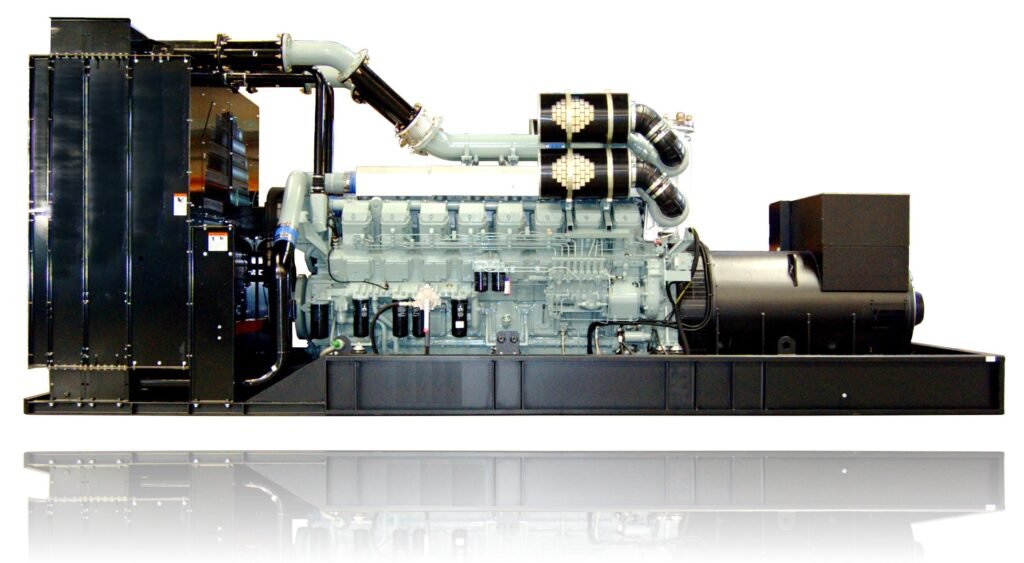
Specialized Japanese Generator Solutions
Electric Japanese Generators
Electric generators are known for their eco-friendliness and efficiency. They’re a great option if you’re looking for a sustainable power source. They use clean energy, making them suitable for various applications where environmental impact is a concern. They are efficient and reliable.
Diesel Japanese Generators
Diesel generators are the workhorses of the generator world. They’re built tough and deliver high power output, making them perfect for heavy-duty jobs. Think construction sites, industrial plants, and remote locations where you need dependable power. US-made diesel generators are a great choice for these applications.
Inverter Japanese Generators
Inverter generators are all about quiet operation and fuel efficiency. They use advanced tech to provide stable and clean power, which is essential for sensitive electronics. If you’re going camping or need to power delicate equipment, an inverter generator is the way to go.
Gas Japanese Generators
Gas generators offer versatility and efficiency. They can run on natural gas or propane, providing an economical and reliable power solution. They’re a solid choice for a variety of applications, offering a balance of cost and performance.
Choosing the right specialized generator depends on your specific needs. Consider factors like power requirements, fuel availability, noise levels, and environmental impact to make the best decision.
Procuring Japanese Generators
Sourcing Strategies for Reliable Suppliers
When it comes to getting your hands on a Japanese generator, it’s all about finding the right people to work with. Japanese manufacturers often prioritize building long-term relationships with suppliers known for their reliability and quality. This means doing your homework and researching potential partners who can meet your specific needs.
- Look for suppliers with a proven track record.
- Check their certifications and compliance standards.
- Consider their experience in the generator industry.
It’s not just about finding someone who can sell you a generator; it’s about finding a partner who can support you throughout the lifespan of the product. This includes everything from initial setup to ongoing maintenance and repairs.
Evaluating Supplier Capabilities
Okay, so you’ve got a list of potential suppliers. Now what? It’s time to dig a little deeper and evaluate what they can actually bring to the table. Japanese manufacturers use pretty strict criteria to make sure suppliers can deliver on their promises. This usually involves looking at their tech skills, how much they can produce, their quality control, and how stable they are financially. Don’t be afraid to ask for references or request a site visit to see their operation firsthand. A comprehensive supplier evaluation is key.
Building Strong Relationships
Procuring a generator isn’t a one-time thing; it’s the start of a relationship. Building a strong connection with your supplier can lead to better service, faster response times, and even custom solutions down the road. Communication is key. Keep them in the loop about your needs and expectations, and be open to their feedback and suggestions. This collaborative approach can help you get the most out of your generator investment. Consider these points:
- Regular communication is important.
- Be clear about your expectations.
- Address issues promptly and professionally.
Challenges and Considerations for Japanese Generators
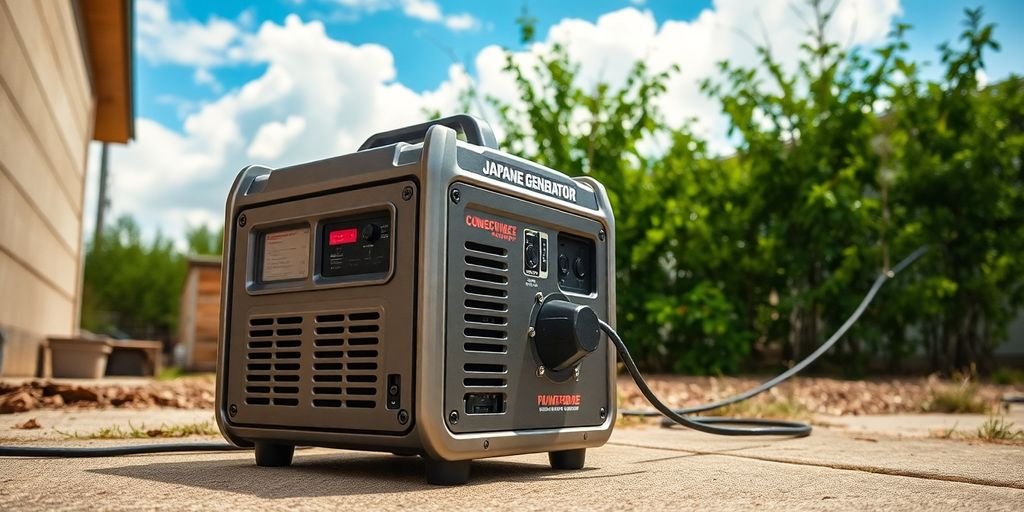
High Initial Costs
Japanese generators often come with a higher price tag upfront. This is mainly due to the advanced technology and high-quality components used in their construction. For smaller businesses or individuals on a budget, this can be a significant barrier. However, it’s important to consider the long-term value. Cheaper alternatives might need more frequent repairs or replacements, potentially costing more in the long run.
Complex Supply Chains
Getting your hands on a Japanese generator isn’t always straightforward. The supply chains can be complex, involving multiple layers of suppliers and distributors. This can lead to delays, especially if you need a specific model or customization. Plus, global events can disrupt these chains, making it even harder to get what you need, when you need it. Sourcing strategies for reliable suppliers diesel generators in Asia are important.
Long-Term Value Proposition
While the initial cost might be high, it’s crucial to think about the long-term value. Japanese generators are known for their reliability and durability, which can translate to lower maintenance costs and a longer lifespan. To really get the most out of your investment, you need to factor in things like fuel efficiency, maintenance schedules, and potential downtime. Beyond the initial price, the real consideration is the total cost of ownership over the generator’s lifespan.
It’s important to weigh the pros and cons carefully. While the initial investment might seem daunting, the long-term benefits of a reliable and efficient Japanese generator can often outweigh the costs. Consider your specific needs and budget, and do your research to make an informed decision.
Here’s a quick look at some factors to consider:
- Initial Purchase Price
- Maintenance Costs
- Fuel Efficiency
- Lifespan
- Potential Downtime
Maintaining Your Japanese Generator
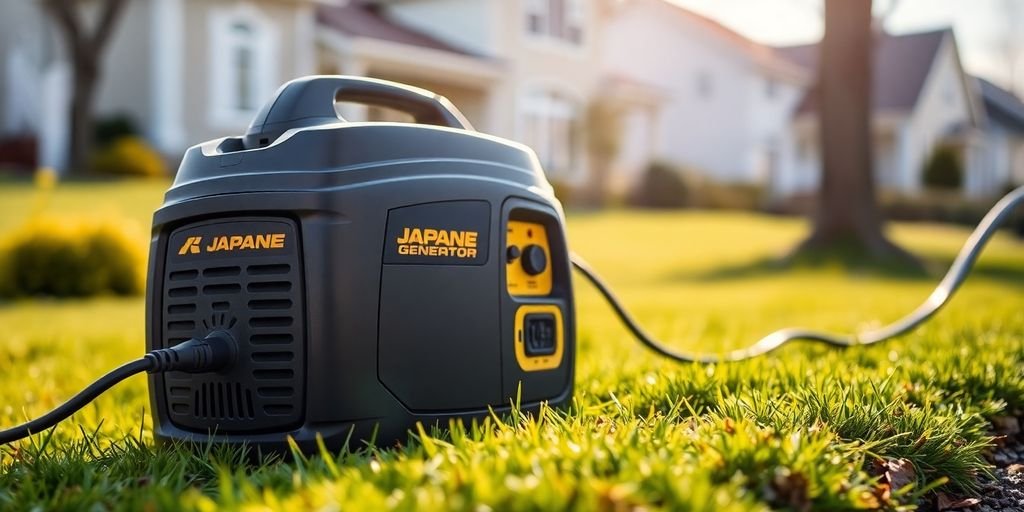
It’s easy to overlook maintenance, but it’s super important for keeping your Japanese generator running smoothly for years. Think of it like taking care of a car – a little effort now can save you from big problems later. Let’s get into the specifics.
Ensuring Longevity and Performance
The key to a long-lasting generator is consistent care. Regular maintenance not only extends the life of your generator but also ensures it performs optimally when you need it most. Ignoring maintenance can lead to decreased efficiency, increased fuel consumption, and, eventually, costly repairs or even complete failure. Think of it as an investment in your generator’s future. A well-maintained generator is a reliable generator. Consider the long-term value proposition of regular upkeep.
Regular Maintenance Practices
Here’s a simple checklist to keep your generator in top shape:
- Oil Changes: Just like your car, your generator needs regular oil changes. Check the generator oil level frequently, especially during extended use. Follow the manufacturer’s recommendations for oil type and change intervals.
- Air Filter Cleaning/Replacement: A clean air filter ensures proper airflow to the engine. Inspect and clean the air filter regularly, and replace it when necessary.
- Spark Plug Inspection: Check the spark plug for wear and tear. Replace it if it’s fouled or damaged. A healthy spark plug ensures efficient combustion.
- Fuel System Maintenance: Use fresh fuel and add a fuel stabilizer if the generator will be stored for an extended period. Drain the fuel tank and carburetor if the generator won’t be used for several months.
- Battery Care (for electric start models): Keep the battery charged and clean the terminals. Replace the battery every few years, as needed.
Regular maintenance is not just about fixing problems; it’s about preventing them. By following a consistent maintenance schedule, you can avoid unexpected breakdowns and ensure your generator is always ready to provide power when you need it.
Professional Repair Services
While you can handle some maintenance tasks yourself, it’s often best to leave major repairs to the pros. Certified technicians have the knowledge and tools to diagnose and fix complex issues. Plus, they can perform thorough inspections to identify potential problems before they become major headaches. Don’t hesitate to seek professional help when needed. It’s better to be safe than sorry, especially when dealing with electrical equipment. Consider sourcing strategies for reliable suppliers of repair services to ensure you have access to qualified technicians when needed.
Wrapping Things Up
So, what’s the big takeaway here? Japanese generators are pretty awesome, plain and simple. They’re built to last, they use some really smart tech, and they just keep going, even when things get tough. Yeah, they might cost a bit more upfront, and getting them can be a little tricky sometimes because of all the parts and stuff. But honestly, when you look at how much money you save in the long run from not having breakdowns and how smoothly everything runs, it’s totally worth it. If you want power that you can really count on, these generators are a solid choice. They help keep things running right and make sure you’re getting good quality work done, no matter what.
Frequently Asked Questions
Why are Japanese generators considered so dependable?
Japanese generators are known for being very reliable and lasting a long time. They are built with great care and use the best materials, so they can handle tough conditions and keep working without problems. This means less worry about power going out.
Are Japanese generators more expensive?
Japanese generators often cost more to buy at first. This is because they use advanced technology and high-quality parts. However, they usually save you money in the long run because they break down less often, need fewer repairs, and use fuel more efficiently.
What kinds of Japanese generators are available?
You can find different kinds of Japanese generators, like portable ones you can carry, standby generators that turn on automatically when the power goes out, and large industrial ones for big businesses. There are also specific types like electric, diesel, inverter, and gas generators.
How do I take care of my Japanese generator?
To keep your Japanese generator working well, you should do regular check-ups, like changing the oil and filters. It’s also a good idea to have a professional service it once in a while to make sure everything is in top shape and to fix any small issues before they become big problems.
Where can I buy a Japanese generator?
You can find Japanese generators from trusted suppliers who specialize in these products. It’s important to choose a supplier who has a good reputation, offers good customer service, and can provide the right generator for your needs.
What makes Japanese generators technologically advanced?
Japanese generators are made with the latest technology, which makes them very efficient and powerful. They are designed to deliver steady power without interruptions, which is great for homes and businesses. Their advanced features also help them use less fuel.

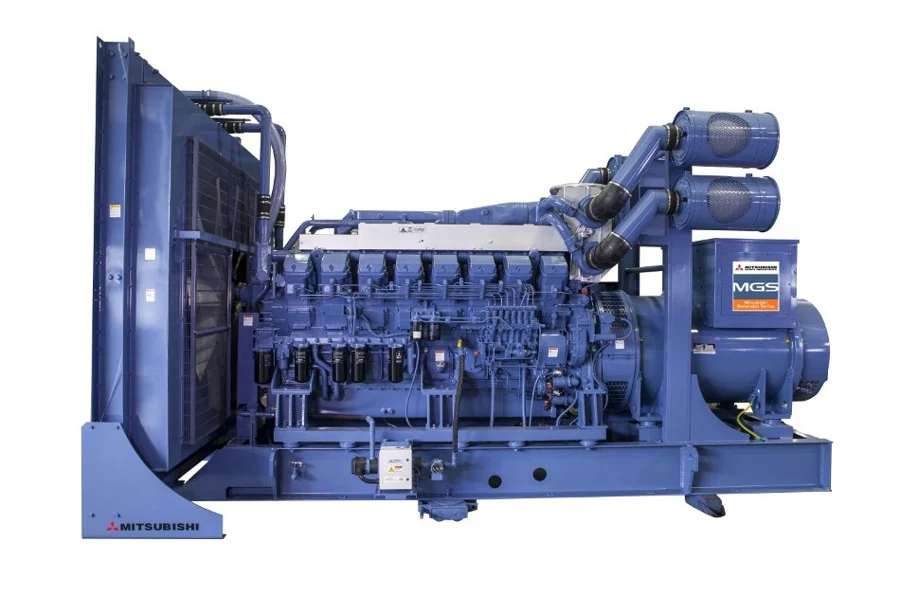


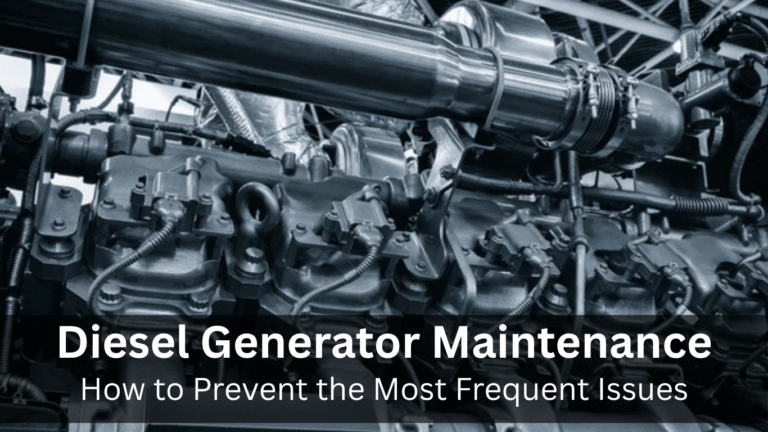

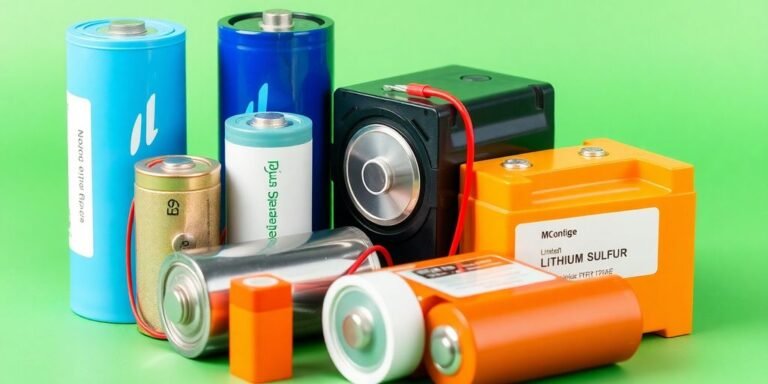


3 Comments